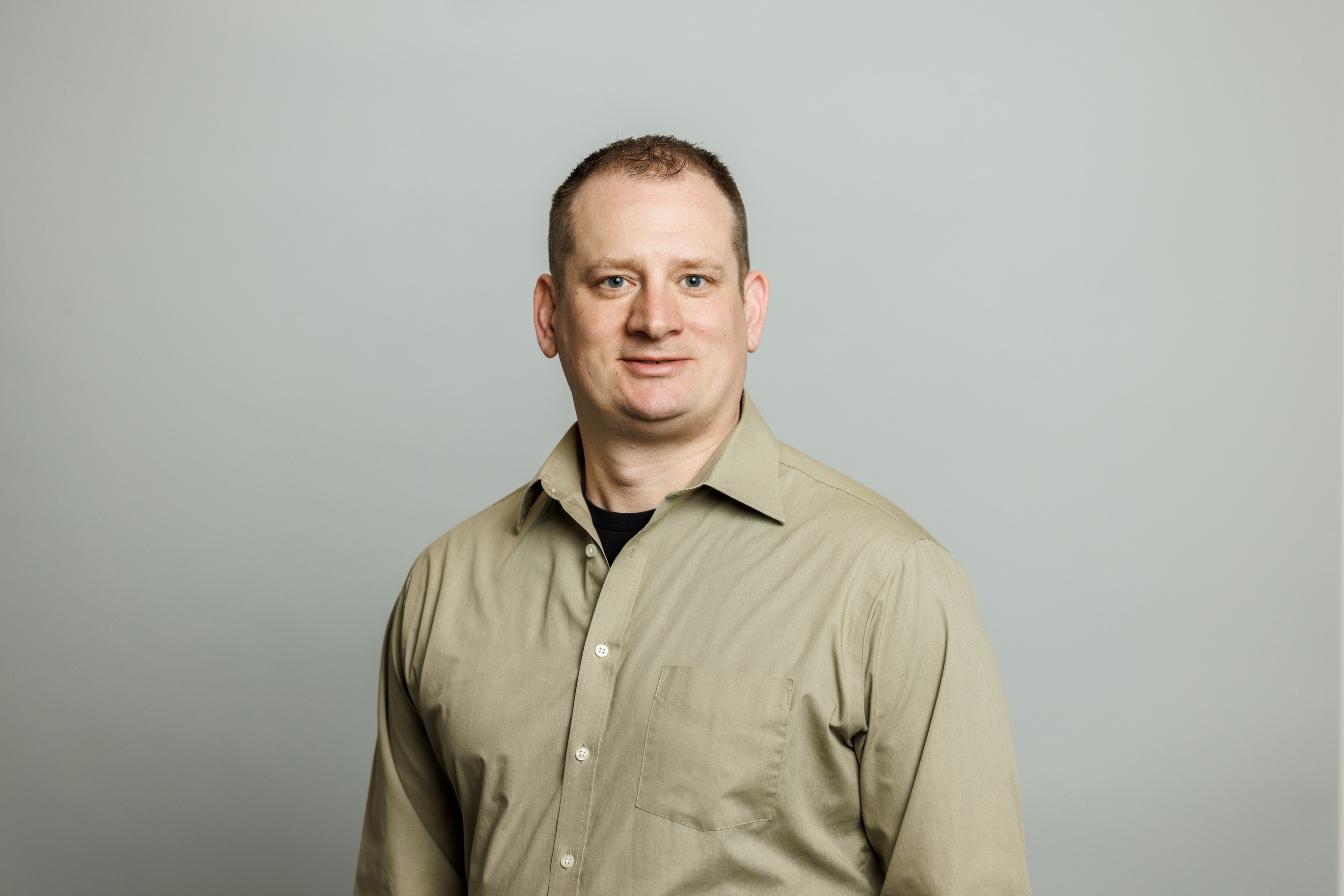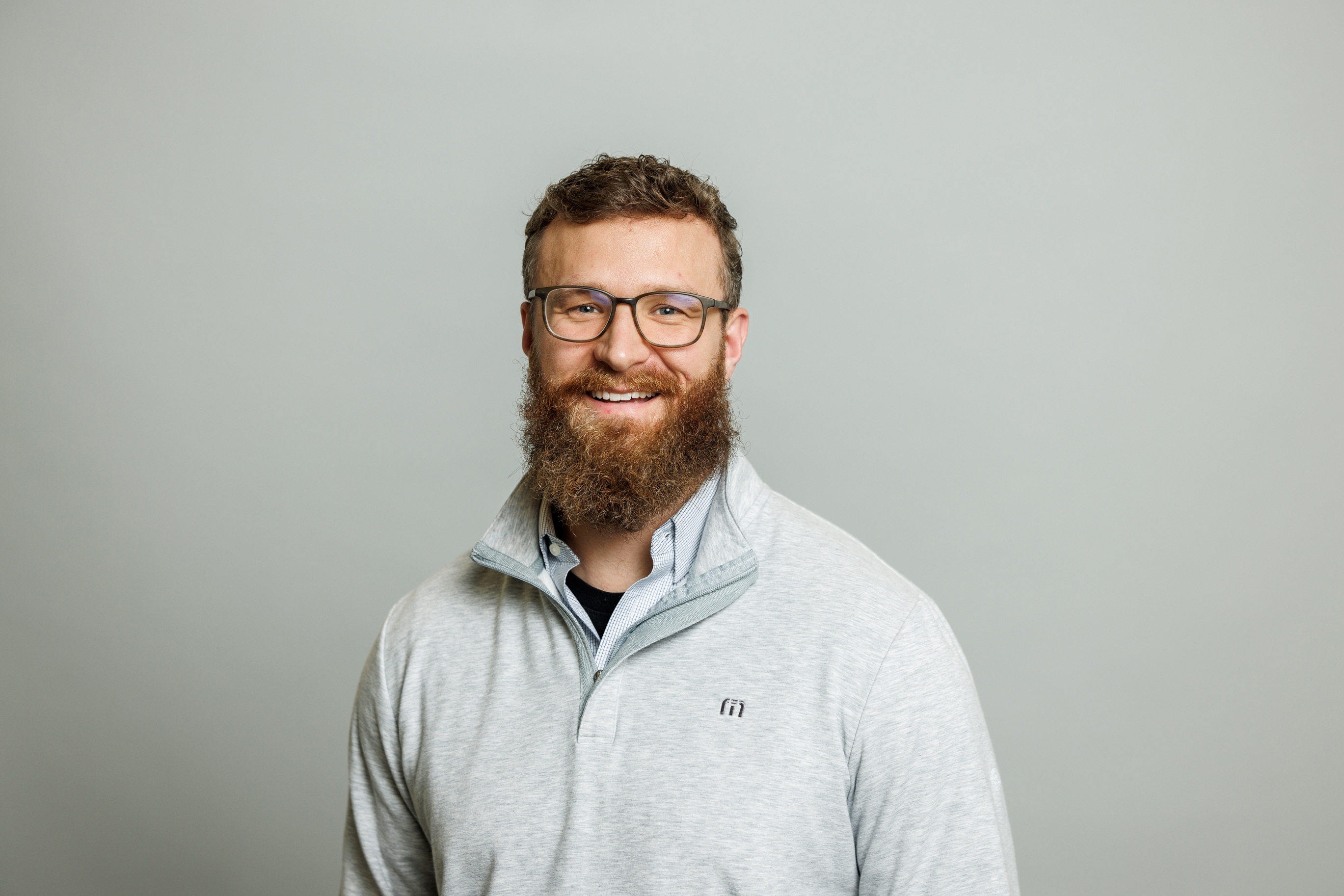Healthcare construction is one of the most complex and highly regulated sectors of our industry and it requires more than just technical expertise. The ASHE Certified Health Care Constructor (CHC) credential is earned by a select group of professionals who have mastered the unique demands of working in active healthcare environments, from navigating strict regulations to protecting vulnerable patients.
At Rockford, our Health + Well-Being team is proud to be supported by several ASHE CHC-certified professionals, including two leading team members featured here. In this Q&A, Eric Kella, Project Executive, and Curt Lautenbach, Senior Project Manager, share their backgrounds, what draws them to healthcare work and how CHC expertise helps us deliver projects that keep patient care at the center.
Let’s start with a quick intro. Can you tell us a bit about your background and how long you’ve been working in health and well-being construction?
Eric: I’ve been working in healthcare construction for 15 years. I got my start through an internship in the field. After gaining experience on a variety of project types, I quickly realized that healthcare was the most complex — and the most compelling. It’s a challenging environment with countless layers, but what makes it so rewarding is the opportunity to directly impact people during some of their most vulnerable moments. That sense of purpose is what’s kept me in it.
Curt: I’ve worked in healthcare construction on and off for about 20 years. I originally fell into it by chance, starting with ambulatory surgery centers (ASCs) and medical office buildings (MOBs) which led to working in the hospital environment. Over time, I found myself drawn back to the pace, precision and purpose of healthcare projects. It makes the work both meaningful and motivating.

What draws you to health and well-being construction? Are there aspects of the work that you find particularly exciting — or especially challenging?
Eric: It requires a high level of soft skills because you're collaborating with a wide range of stakeholders: CEOs, department heads, facility directors and clinical staff. Effective communication is critical, and it differs significantly from working on schools or multifamily projects.
You’re often building in active, occupied spaces, sometimes around immunocompromised patients, so your presence and decisions directly impact patient care. The level of detail and discipline required — in both planning and personal conduct — is heightened. It’s a challenge, but also what makes the work so meaningful.
Curt: Health and well-being construction requires a high level of communication and coordination, which can be challenging, but also incredibly rewarding. What excites me most is knowing that the work we do has a direct impact on people’s lives. When a complex project goes smoothly and staff can perform their jobs without disruption — and patients continue to receive care without even noticing the construction — that’s a real success.
In this industry, construction often comes third, behind patient care and staff operations. That mindset keeps us focused on what really matters and adds meaning to the work we do every day.

You both hold the ASHE Certified Health Care Constructor (CHC) credential. How has that expertise benefited your work, and what advantages does it offer to clients?
Eric: It’s proven expertise. The requirement is that you have several years of proven experience in the healthcare construction field, and it’s confidence that you know what you’re doing. You can’t send just anybody into an operational healthcare environment.
Curt: It’s valuable because it demonstrates both longevity and depth of expertise in the field. From understanding project financials to managing fire suppression systems and air change requirements, the CHC credential reinforces our ability to apply specialized knowledge across every aspect of a healthcare project.
From your perspective, what do you think is important for clients to understand about construction, and what should they look for in a construction partner?
Eric: If we do a poor job, we can negatively impact patient experiences. CHC is a standard of experience and expertise. This proves volume for the actual person rather than the company. CHC goes with the person. Our expertise bolsters Rockford’s health and well-being experience.
Curt: Many hospitals' federal funding is dependent on their patient satisfaction scores. If people have a negative experience, that can affect their bottom line. When you work with trusted partners like Rockford, healthcare providers can continue focusing on what matters most – exceptional patient care.



.webp)






